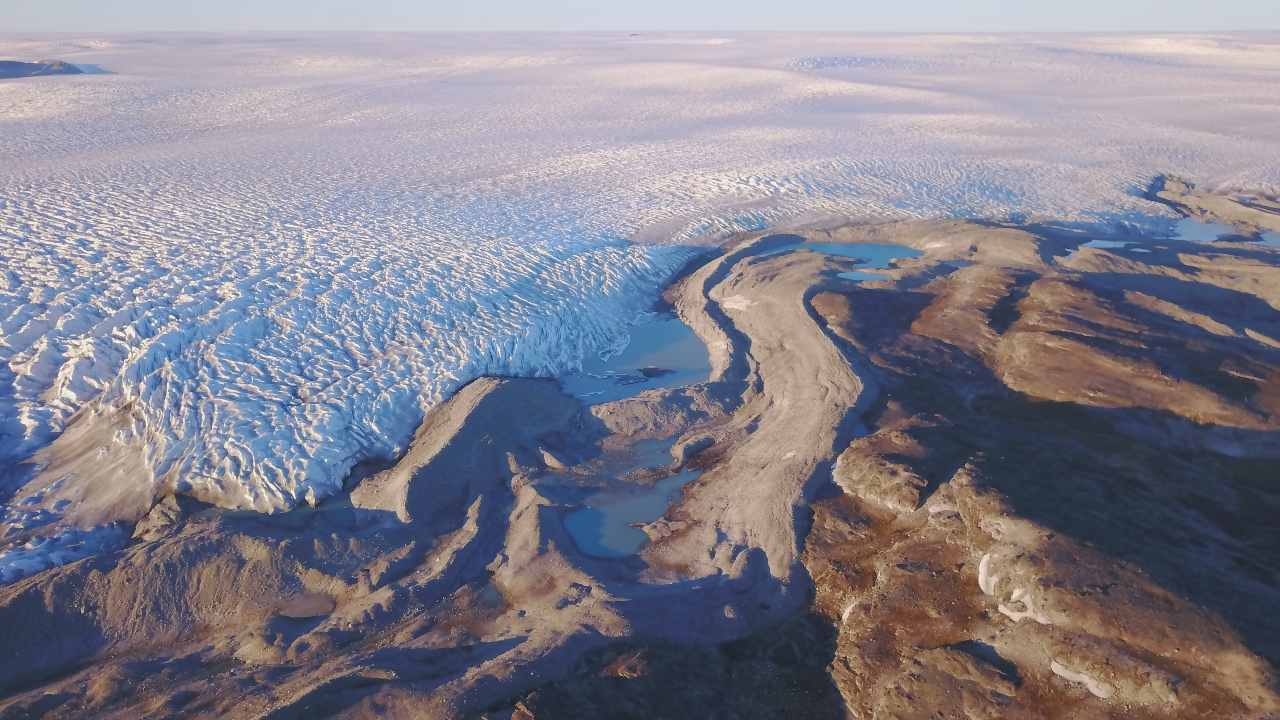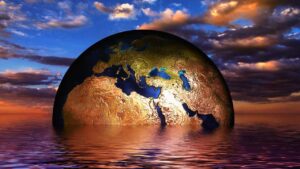FP TrendingAug 23, 2021 18:16:31 IST
In a stark sign of climate change, rain fell at the summit of Greenland’s ice sheet for the first time in recorded history. The average temperatures are normally well below freezing degree on the summit, which is at a height of 10,551 feet above sea level.
The precipitation, which occurred during an exceptionally warm three days, saw temperatures rising 18 degrees higher than average.

The edge of the Greenland Ice Sheet. Credit: Jason Briner
Researchers recorded rainfall on 14 August. It has been estimated that about seven billion tonnes of water fell across the sheet. The rainfall caused significant melting in most of Greenland, an area approximately four times the size of the UK.
This marks the third time in recorded history that temperatures in Greenland have gone above freezing point. The region also saw a large-scale melting episode in July this year, making scientists worried about the effect of climate change.
In an interview, Ted Scambos, a scientist at the National Snow and Ice Data Center at the University of Colorado, called the event “unprecedented”. “We are crossing thresholds not seen in millennia, and frankly this is not going to change until we adjust what we’re doing to the air,” he added.
In May this year, scientists had stated that a large portion of Greenland’s ice sheet was nearing a significant tipping point, after which accelerated melting of the ice would be a given, even if global warming was stopped.
The global sea levels would rise by six metres if all of Greenland’s ice melted. The event would affect millions around the world and submerge low-lying cities such as Amsterdam, New York, and Shanghai. Though the event could take centuries to occur, the rapid levels of ice melt due to global warming is a cause of worry for scientists.
It has been estimated that if aggressive interventions are not taken, the Arctic could be ice-free by 2050.










